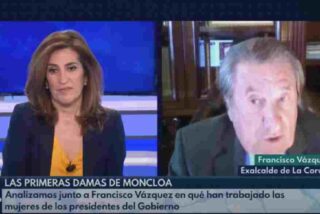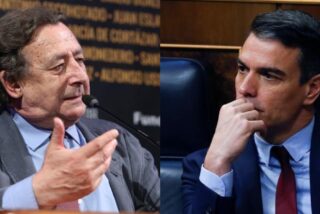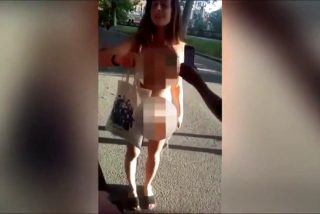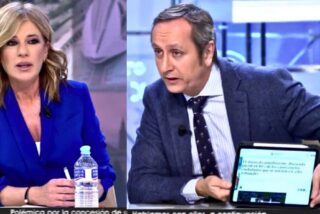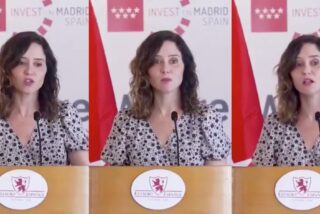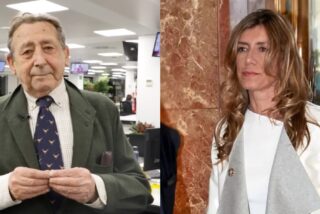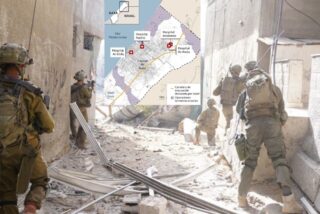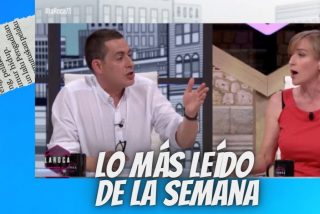La revista «The Economist» sostiene que el presidente catalán, Artur Mas, está «en la cuerda floja» después de que el Tribunal Constitucional anulara su consulta para el 9 de noviembre, ya que el «simulacro de referéndum» que piensa ahora convocar para esa fecha sólo le servirá para ganar tiempo.
En un artículo titulado «Mas observation» («La contemplación de Mas»), el semanario británico afirma que, tras la decisión del Constitucional, está generando «incertidumbre» el «juego de política calculada a tres bandas» que están desarrollando Mas, Mariano Rajoy y ERC.
La publicación inglesa destaca que Mas puede perder el apoyo del partido de Oriol Junqueras para aprobar los presupuestos de 2015, por lo que «está en la cuerda floja».
A juicio de «The Economist», la «parodia de referéndum» que el presidente catalán quiere hacer ahora el 9-N sólo «compra tiempo» de los colectivos civiles que apoyan la deriva soberanista.
Sin embargo, esta revista afirma que una lista conjunta de los nacionalistas en unas elecciones plebiscitarias «podría dividir CiU», ya que mientras CDC es «mayormente separatista», Unió (UDC), el partido de Josep Antoni Duran i Lleida, es en su mayoría no independentista.
Además, se destaca que si Mas decidiera retrasar las elecciones para evitar mayores complicaciones, se quedaría encabezando «un Gobierno de paja». A esto se sumaría que unas elecciones catalanas no darían la mayoría ningún partido, por lo que «la fragmentación del panorama político sólo incrementa la incertidumbre».
Sin embargo, el artículo concluye que esto «podría forzar a los políticos de diferentes tendencias a negociar, algo que ha estado notoriamente ausente desde hace tiempo del debate catalán».

EL ARTÍCULO EN INGLÉS
Catalonia’s future
Mas observation
A referendum is off, but a vote is still on. Result: confusion
CATALONIA’S referendum on independence, planned for November 9th, will not now happen. Or might it, after all? On October 14th the Catalan president, Artur Mas, admitted that, with the referendum officially suspended by Spain’s constitutional court, it would have to be scrapped. But, he added, some other sort of public consultation will still happen on that day-and it will involve ballot boxes.
Mr Mas refused to provide details. He claimed that he did not want to give the Spanish prime minister, Mariano Rajoy, too many clues about his plans.
Given the legal obstacles, even Mr Mas may not be sure how to proceed. Catalonia’s more radical and leftist separatists were angered by his decision to obey the court while calling for a watered-down, pseudo-referendum.
They want an early election in this rich and populous region of north-east Spain. Mr Mas is trying to deflect the separatists’ claims of cowardice by ramping up the war of words. «The Spanish state is the adversary,» he declared.
A three-way game of brinkmanship between Mr Rajoy, Mr Mas and the separatist Catalan Republican Left (ERC) party that props up his government in Catalonia is creating uncertainty. Mr Rajoy has used the constitutional court to block the referendum, though it may take another five months to rule definitively that it is illegal.
He offers little else beyond a readiness to talk. ERC proposes civil disobedience, an illegal referendum and, eventually, a unilateral declaration of independence. If it cannot have these, it wants an election that it is likely to win.
If one is not called, it threatens to withdraw support from the government led by Mr Mas’s Convergence and Union (CiU), making it impossible to pass a budget for 2015.
Mr Mas is on a tightrope. His mock referendum buys time and is a clever bid to win temporary backing from the well-organised civil activists who are the motor behind separatism.
After November 9th, he says, there should be a single-issue plebiscitary election, in which separatists stand together to allow Catalan voters formally to express their views on independence.
But such an election would split CiU, which unites Mr Mas’s mostly separatist Catalan Democratic Convergence (CDC) party with the largely non-separatist Democratic Union of Catalonia (UDC). The UDC has already suggested that it may form a new centrist coalition.
Mr Mas wants ERC to join him in a single list, in effect forming another coalition. If ERC instead insists on standing separately, an election might be a long time coming, because Mr Mas’s CDC would be hammered.
It will lose the votes of moderates, who fear a damaging stand-off with Madrid, and of convinced separatists, who are shifting to ERC. But without holding an election, Mr Mas will be left leading a lame-duck government.
Whoever wins in Catalonia will not gain an absolute majority. Nor, thanks to an upsurge of support for smaller parties, will the victor in Spain’s general election, due late next year.
Fragmentation of the political landscape only increases the uncertainty. But it could also force politicians of different stripes to negotiate-something that has been noticeably missing from the Catalan debate so far.




